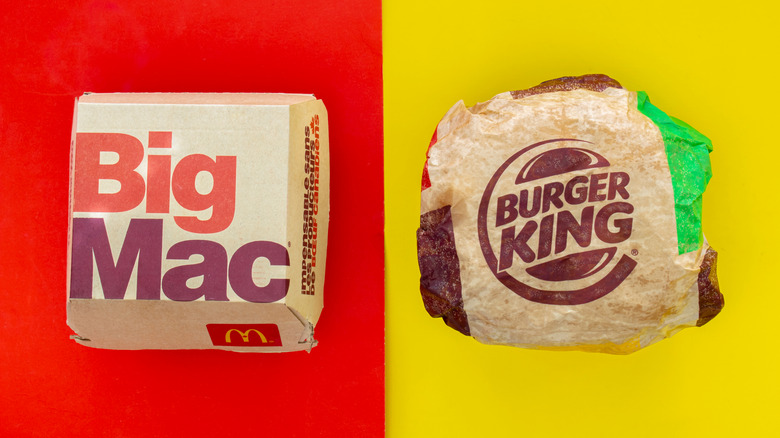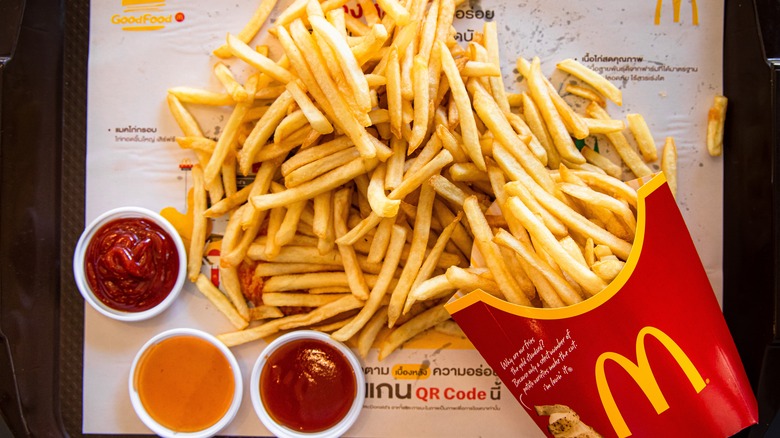Why McDonald's And Burger King Are Being Sued For Misrepresentation
Whether it's a Big Mac, Whopper, or some french fries, certain fast food items are familiar enough to be recognized just about anywhere in the world. But if you ask some people, the packaging these foods come in needs to be tossed in the trash. As Nation's Restaurant News reported, both McDonald's and Burger King have several pending lawsuits that allege "misrepresentation and false advertising for claiming the food they serve is safe." The claim arises from a Consumer Reports study that discovered a lot of fast food packaging contains PFAS (per- and polyfluoroalkyl substances); the lawsuits allege major fast food corporations are purposefully misleading consumers by using this type of packaging.
According to Consumer Reports, PFAS are "forever chemicals." Present in various types of food packaging, these components help with durability, but have been linked to various health problems. Although some quick service restaurants and food brands are seeking to remove PFAS-type packaging, the current lawsuits allege that the corporations are intentionally misleading consumers through their current use of the various wrappers, bags, and other items. While the lawsuits do mention the health impact of PFAS, the claim focuses on the business practices, which can be easier to prove in court.
How consumer protection laws apply to food safety
With the two pending lawsuits against McDonald's and Burger King's food packaging choices — and potentially more on the way, according to Nation's Restaurant News — some people might be wondering if these filings are just a money grab or if there's a legitimate legal claim to be unwrapped.
According to TopClassActions.com, the pending litigation against McDonald's looks to prove the argument of "profits over people" with its claims that the corporation's "willful use" of PFAS packaging is in violation of various consumer protection acts. Although scientific reports assert that the packaging can cause health issues, that claim can be difficult to prove. On the other hand, proving by the preponderance of the evidence that a corporation decided to use a product that it knew was detrimental and profited from that choice is one that legal minds are willing to debate in court. While this lawsuit might lead to late-night comedic fodder, the bigger issue here is companies that lead consumers to believe its products are safe when they may not be. Although it might not be beneficial to one's health to eat a table full of Big Macs, the wrapper that holds those all burgers shouldn't add another layer of issues.

